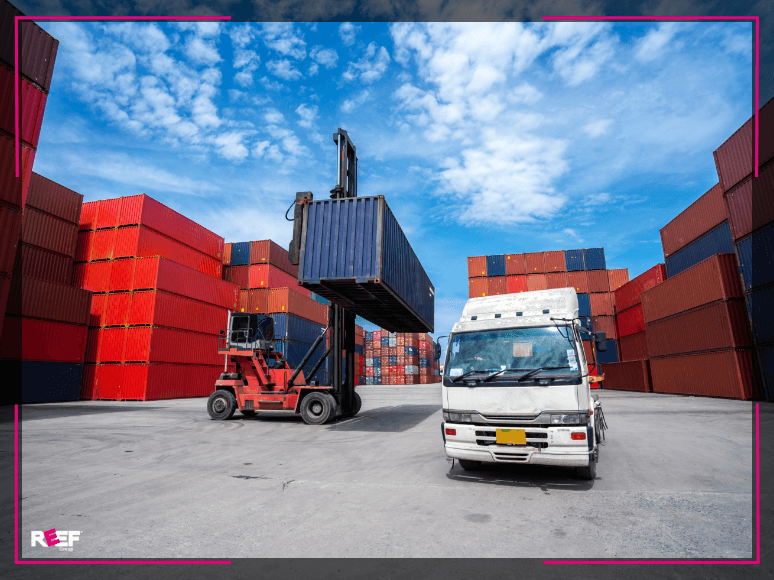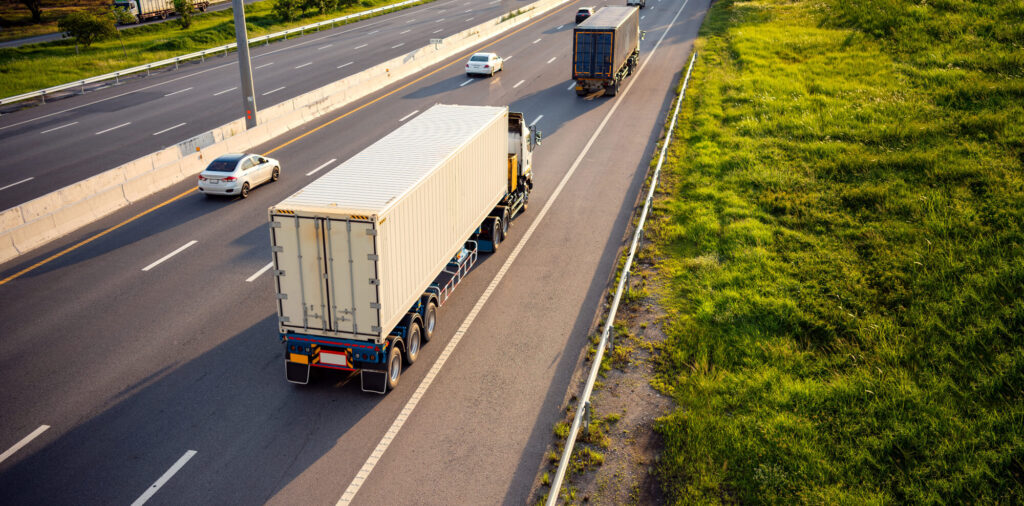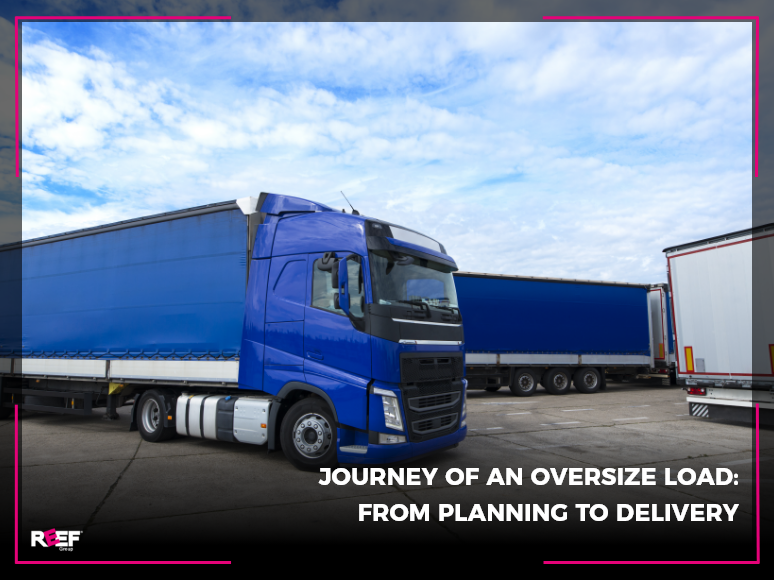Securing Your Goods: How Transport Companies Protect Shipping Containers

How Transport Companies Handle the Challenges of Shipping Oversized Containers
August 11, 2023
HIAB in Action: Most Common Uses and Applications of HIAB Trucks
November 6, 2023
It is all well and good to ensure your goods are packed safely and securely inside the shipping container, but have you ever wondered about the measures transport companies take to protect the containers themselves during transit?
Unpredictable weather, thieves and simple wear and tear are some of the major factors for companies to consider when transporting containers. Companies will also use a range of high-tech systems like cameras and alarms to ensure that access to the container is restricted to authorised people only. In this blog, we will explore the different types of locks, security strategies and training used to protect shipping containers in storage and when they are being moved.
Locks
High-quality locks are the first step in securing shipping containers. Hardened steel padlocks or disc locks are used to ensure that no unauthorised people gain access to the containers as they travel to their destination. Lockboxes provide an extra layer of security. Made from high-tensile steel, they are designed to protect the locks themselves. They are easy to install and highly effective.
If transported by road, twist locks are used to securely fasten the container to the trailer bed. This eliminates the risk of sagging straps trailing on the ground or snapping altogether. The container will lock into place at each corner point, distributing the weight evenly and minimising the risk of falling off during transit.
Seals
You may have the best locks in the world, but they will be useless if the container is rust-damaged or corroded. Potential thieves will search out holes that may have formed in this way, so it is important to ensure the container is fully sealed. Quality shipping companies will offer corrosion-resistant containers that reduce this risk, but you can always add another layer of security by treating your container with a product that will prolong the life of the metal and inhibit corrosion.
Container security devices
- Cameras
All yards and ports have state-of-the-art surveillance cameras to ensure that the containers that pass through them are handled professionally. Transport companies might also install a pole-mounted CCTV camera on the container itself as a visible warning to potential thieves that they are being watched. It also provides a clear line of sight to the front of the container.
Another way transport companies protect their shipping containers is to have cameras installed inside the containers to catch any unauthorised individuals who might gain entry. Cameras are also often installed in truck cabs, providing the company with quality assurance in knowing that the driver is trained and carrying out their job properly.
- GPS tracking
Hi-tech GPS systems are used to track containers from their origins to their destinations. These devices monitor location and temperature in real-time, reassuring the customer that their goods are safe and secure at every stage of transit. In addition to this, systems such as these are essential in guaranteeing accurate arrival dates and delivery times.
- Alarms
The cameras and GPS tracking systems are connected to alarms, both within the container itself and a 24/7 operations centre. In the rare case that these alarms are triggered, alerts can be sent directly to the customer’s mobile device, ensuring that updates happen in real-time, and responses are effective and efficient.
Alarms can even be programmed to detect severe fluctuations in temperature, protecting sensitive goods from succumbing to moisture or freeze damage, which can ultimately affect the integrity of the container itself. Data from all of these systems is collated by transport companies to ensure the services they provide remain of the highest quality.

Choose secure routes
Choosing a secure route of transit is extremely important. Some international sea transport routes are at higher risk of piracy or cargo theft, so avoiding these areas protects a company’s assets. This could sometimes prolong the transit of goods, but that is a small price to pay.
When transporting by road, it is important to plan the route efficiently to avoid low bridges and unstable sections that could cause collisions or tipping of the transport vehicle.
Training
Protection of shipping containers starts at home. Transport companies follow rigorous training programmes that ensure that their staff are fully equipped to spot any defects before their containers are used. Specialist technicians install complex security systems that monitor and protect containers at every stage of their journeys, and regular inspections are also made to check that locks, seals and security devices are fit for purpose.
With years of experience in the industry and countless successful jobs under their belts, Reef Group, a transport company in Perth, are experts in protecting shipping containers.


